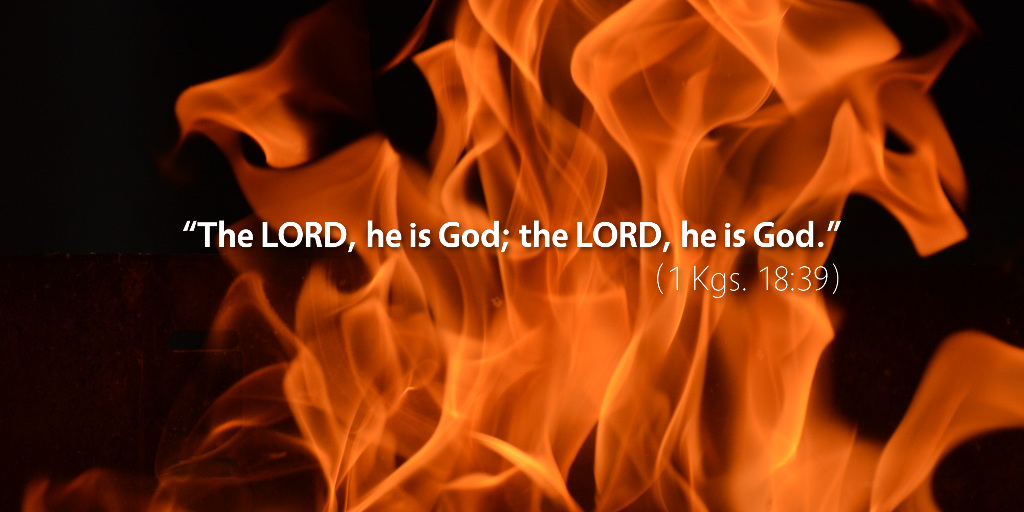Bible Readings for October 15th
1 Kings 18 | 1 Thessalonians 1 | Ezekiel 48 | Psalm 104
In the head-to-head showdown of the gods in 1 Kings 18, Yahweh leads the people of Israel to repentance for the sins they had committed. This is one of the more famous stories from the Bible, but in context, its significance runs far beyond a simple display of Yahweh’s power. Here, Yahweh makes a major move toward restoring his covenantal relationship with his people.
First, Elijah is not Yahweh’s only servant. In 1 Kings 18, we read about Obadiah, whose very name means “servant of Yahweh.” Obadiah serves King Ahab, but with the autonomy afforded him by his role, he hides one hundred prophets of Yahweh in a cave and feeds them to preserve their lives (1 Kgs. 18:3–4). The true faith has not completely died out in the nation of Israel.
Second, Elijah rejects Ahab’s naming him as the “troubler of Israel” (1 Kgs. 18:18), countering that it is Ahab who has troubled Israel by his disobedience to Yahweh and his worshiping the Baals. While Elijah’s response to Ahab doesn’t condone any kind of prideful self-righteousness, he does help us to remember that God created the world to function in a certain way—specifically, human beings were created to love, worship, and obey God. To whatever extent we fall short of that standard, we will necessarily experience brokenness, pain, and anguish—that is, we will trouble ourselves and those around us.
Third, Elijah perceives that Ahab is essentially making a truth claim—that his god, Baal, is the most powerful god and, therefore, the god whom Israel should worship. Elijah challenges this by setting up a head-to-head contest for the gods, where the prophets would ask their respective gods—Baal or Yahweh—to send fire from heaven on the appropriate altar on Mount Carmel. While the false prophets cannot get a single spark from their god, Yahweh pours out fire from heaven to consume Elijah’s entire, water-soaked altar, causing the people to fall on their faces in worship, declaring, “The LORD, he is God; the LORD, he is God” (1 Kgs. 18:39). Elijah then destroys all the false prophets in accordance with Yahweh’s command in Deuteronomy 13, and afterward, Elijah prays, asking Yahweh to bless the land with rain again, as Yahweh had promised if his people covenantally obeyed (Lev. 26:3–6; Deut. 28:12, 23–24).
And yet, for as much as this episode represents a great success for Elijah and for Yahweh, the repentance of the people of the northern nation of Israel will not endure. Ultimately, lasting transformation and redemption will require nothing less than for God’s own Son to be slaughtered at the cross, consumed under the fires of God’s wrath against us for our sin, so that we might be restored to a covenantal relationship with God despite our own idolatries.
Podcast: Play in new window | Download (5.0MB) | Embed
Subscribe: Apple Podcasts | RSS | More

Scripture quotations are from The Holy Bible, English Standard Version copyright © 2001 by Crossway Bibles, a division of Good News Publishers. Used by permission. All rights reserved.


